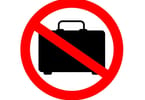(eTN) – In recent times, the number of Africans heading overseas has doubled. Across the continent, West Africa and Nigeria especially, there is hardly a family without a member living overseas legal or illegally. In fact, it has become a matter of status symbol to have a family member living overseas. Across West Africa and Nigeria, many families live mainly on remittance from abroad.
Indeed, the contributions of these people to the economies of their countries, especially remittances are growing by the day. For instance, report released recently by the Central Bank of Nigeria (CBN) show that Nigerians in the Diaspora remitted $8 billion in the first halve of this year alone. The figure is expected to double by December 2007.
Decades ago, Africans were begged or lured to travel overseas to acquire western education. This was the case in the years before and after independence when the new states in need of the manpower to run their affairs offered scholarships to bright, young Africans.
Today, the trend has changed. The door to the Western world is no longer the prerogative of educated Africans, but to anyone who can afford to pay the fare. It is common knowledge across West Africa that money and fortunes don’t grow on the streets of Europe, but abundance of opportunities which is lacking in Africa for both skilled and unskilled Africans. Indeed, the harsh economic situation is the principal factor propelling many young Africans to migrate at all costs and the few that had succeeded are living better than those back home.
Since the early ‘80s, unskilled West Africans have been moving voluntarily in large numbers to Europe for economic reason, with Spain, Italy and Malta as destinations of choice. This is in addition to those displaced by war and crisis in places like Liberia, Sierra Leone and recently in the Cote d‘Ivoire.
Many of these travelers, who cannot secure visas directly from the embassies of western countries, are now turning to the desert and the sea. Risking everything, they believe that the European Union under the Schengen arrangement do not want them hence their governments cannot provide basic necessities of life. As a result, they have chosen to move to countries they perceive have a level- playing ground for all that dare to dream.
The new set of immigrants, male and female comprises poorly trained carpenters, bricklayers, mechanics, and some without any form of vocation. According to the Nigerian embassy in Spain, of the 18,000 Nigerians there, nearly 10,000 of them can neither read nor write English, Nigeria’s official language because they never had any form of education. The same applies to Ghana, Senegal, Mali and Cameroon the main illegal immigrant-generating countries in West Africa.
Many African immigrants who are today considered security risk to Europe are people who made it the hard way to Europe. They either paid so much to secure visas or entered through the various roads and sea routes. To embark on this trip, many sold their properties or took loans that must be repaid at stipulated time. Their failure to repay the loans often meant dire consequences for their families back home. To avoid this danger, the immigrants are often forced into what is called ‘fast lane’ in Africa; criminal activities, prostitution and dealing in hard drugs.
These illegal immigrants, uneducated and largely without any vocation find it difficult to integrate. They face language and cultural problems, thereby making integration difficult, if not impossible.
In spite of the threat of imprisonment, racism, cultural barrier and the status of second class citizen in some countries abroad, many are still defiant, embarking on the journey to better their economic condition.
The migration of Africans in their thousands is causing disquiet in the European Union. The trend has become an issue for electoral campaigns with some parties proposing tougher measures to check the flood of immigrants.
The rumour making the rounds that several patrol boats are deliberately targeting and sinking illegal immigrants’ boats as a way of stopping them from reaching Europe as well as recent revelation of brutality of African children in the Canary Islands cannot solve the problem. Besides damaging the reputation the EU as a credible body, will raise the stakes for the people to dare to make the trip.
With the failure of the aforementioned, the EU has once again step up its pressure on Libya and Morocco to be tougher on perceived African migrants by maltreating them and with the view to discouraging them from embarking on the journey through the desert and into Europe.
While Morocco in most cases refuses to deport mostly Nigerians, Libya despite its Pan Africanism stand has continue to deport Africans indiscriminately. There are clear evidence of crude treatment of African migrants, with many locked in big bags and sacks and dumped in the Mediterranean sea by Libya security and ordinary Libyan.
For a safer Europe, jobs and assistance should be given to these categories of people to lure them away from committing crimes across Europe. Similarly, the Schengen visa requirement should be relax, if Europe wants immigrants coming from Africa to be under less pressure.
Be that as it may, whether skilled or unskilled, some of the best brains and minds have left the continent in search of better life overseas thereby creating a void in all strata of our human endeavor.
African leaders are responsible for the huge human capital flight overseas. There is no gainsaying that life in Africa is nasty, short and brutish. Political stability, security of life and property, first class infrastructure, opportunities to actualize one’s dream are some of the things that attract Africans to Europe, America and Asia.
The provision of a conducive environment would not only stem the tide but also encourage Africans in the Diaspora to return home to chart the continent to greater heights.
[Lucky George is eturbonews ambassador in Nigeria and publisher of www.travelafricanews.com. He is also a winner of European Commission 2006 Lorenzo Natali Prize for Journalists Reporting Human Rights and Democracy.]
WHAT TO TAKE AWAY FROM THIS ARTICLE:
- The rumour making the rounds that several patrol boats are deliberately targeting and sinking illegal immigrants' boats as a way of stopping them from reaching Europe as well as recent revelation of brutality of African children in the Canary Islands cannot solve the problem.
- In spite of the threat of imprisonment, racism, cultural barrier and the status of second class citizen in some countries abroad, many are still defiant, embarking on the journey to better their economic condition.
- This was the case in the years before and after independence when the new states in need of the manpower to run their affairs offered scholarships to bright, young Africans.






















